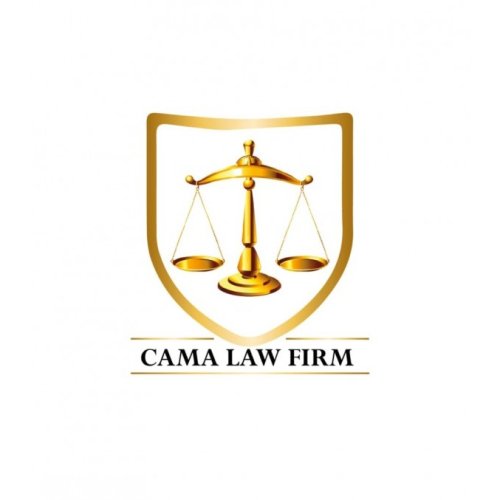Best Disability Insurance Lawyers in Douala
Share your needs with us, get contacted by law firms.
Free. Takes 2 min.
List of the best lawyers in Douala, Cameroon
About Disability Insurance Law in Douala, Cameroon
Disability insurance law in Douala, like in the rest of Cameroon, falls under the domain of social security regulations. This insurance is meant to replace a certain percentage of your income if you become disabled and unable to work. The National Social Insurance Fund, French acronym - CNPS, is the body that oversees disability insurance in Douala, enforcing the Disability Insurance Act which sees to it that all eligible employees are covered by their employers.
Why You May Need a Lawyer
There are several situations where you may require legal expertise in disability insurance affairs. These cases include, but aren't limited to, when you feel wrongfully denied your disability benefits, when you're not in agreement with the disability payment calculations, or when you need help understanding and navigating the CNPS disability guidelines. A professional lawyer can help you file appeals, represent you at hearings, aid you in gathering necessary medical and employment records, and ensure your rights are respected and protected.
Local Laws Overview
In Douala, Cameroon, the key aspects of local laws regarding disability insurance revolve around eligibility, benefits, and claims. The law states that for one to qualify for the benefits, they must have contributed to the scheme for a given period as specified by CNPS. The benefits due are based on the insured's average wage, the degree of disability and number of dependents. Also, it's the employer's responsibility to report and register employees for disability insurance. Failure to comply with these rules may lead to legal consequences, including financial penalties.
Frequently Asked Questions
1. What is the period of contribution to be eligible for disability insurance?
The exact period can vary, but generally, employees need to have contributed for at least 12 months within the last three years before the onset of the disability.
2. How are disability benefits calculated?
The benefits are based on the insured's average wage during the twelve months prior to the disability, the degree of disability, and the number of dependents.
3. Are all type of disabilities covered?
Yes, both physical and mental disabilities are covered, so long as they affect your ability to perform your regular work.
4. Are contract or part-time workers eligible?
Yes, all employees, including contract and part-time workers, should be covered by their employers as long as they meet the contribution requirements.
5. What is the process of filing a claim?
The process involves submitting several documents to the CNPS, including a medical certificate proving disability, proof of income, and contributions. Getting a lawyer can greatly ease this process.
Additional Resources
In addition to hiring a competent lawyer, several resources can be of help. These include the CNPS website, which provides comprehensive details on disability coverage, local legal aid societies, or institutions like the National Commission on Human Rights and Freedoms. Other resources are disability advocacy groups and various online legal platforms.
Next Steps
If you need legal assistance with disability insurance, your first step should be consulting a lawyer experienced in this field. From there, the lawyer can guide you on whether you need to file a claim or an appeal, help you gather the necessary documents, and represent you throughout the process. Do not forget to carry along all relevant documentation during your consultation session.
Lawzana helps you find the best lawyers and law firms in Douala through a curated and pre-screened list of qualified legal professionals. Our platform offers rankings and detailed profiles of attorneys and law firms, allowing you to compare based on practice areas, including Disability Insurance, experience, and client feedback.
Each profile includes a description of the firm's areas of practice, client reviews, team members and partners, year of establishment, spoken languages, office locations, contact information, social media presence, and any published articles or resources. Most firms on our platform speak English and are experienced in both local and international legal matters.
Get a quote from top-rated law firms in Douala, Cameroon — quickly, securely, and without unnecessary hassle.
Disclaimer:
The information provided on this page is for general informational purposes only and does not constitute legal advice. While we strive to ensure the accuracy and relevance of the content, legal information may change over time, and interpretations of the law can vary. You should always consult with a qualified legal professional for advice specific to your situation.
We disclaim all liability for actions taken or not taken based on the content of this page. If you believe any information is incorrect or outdated, please contact us, and we will review and update it where appropriate.








